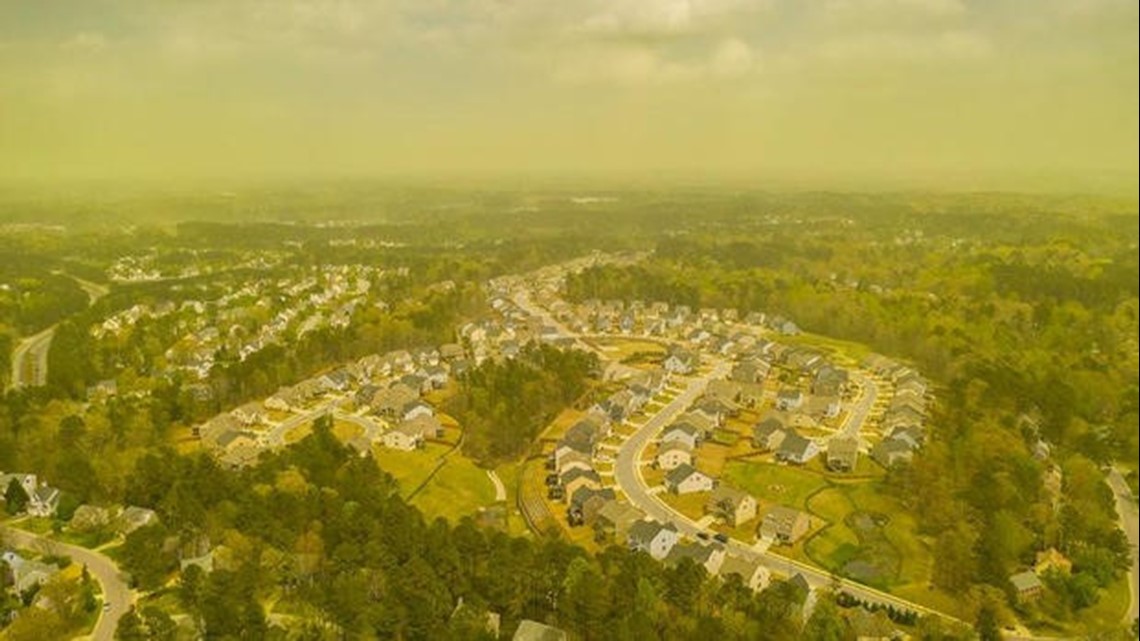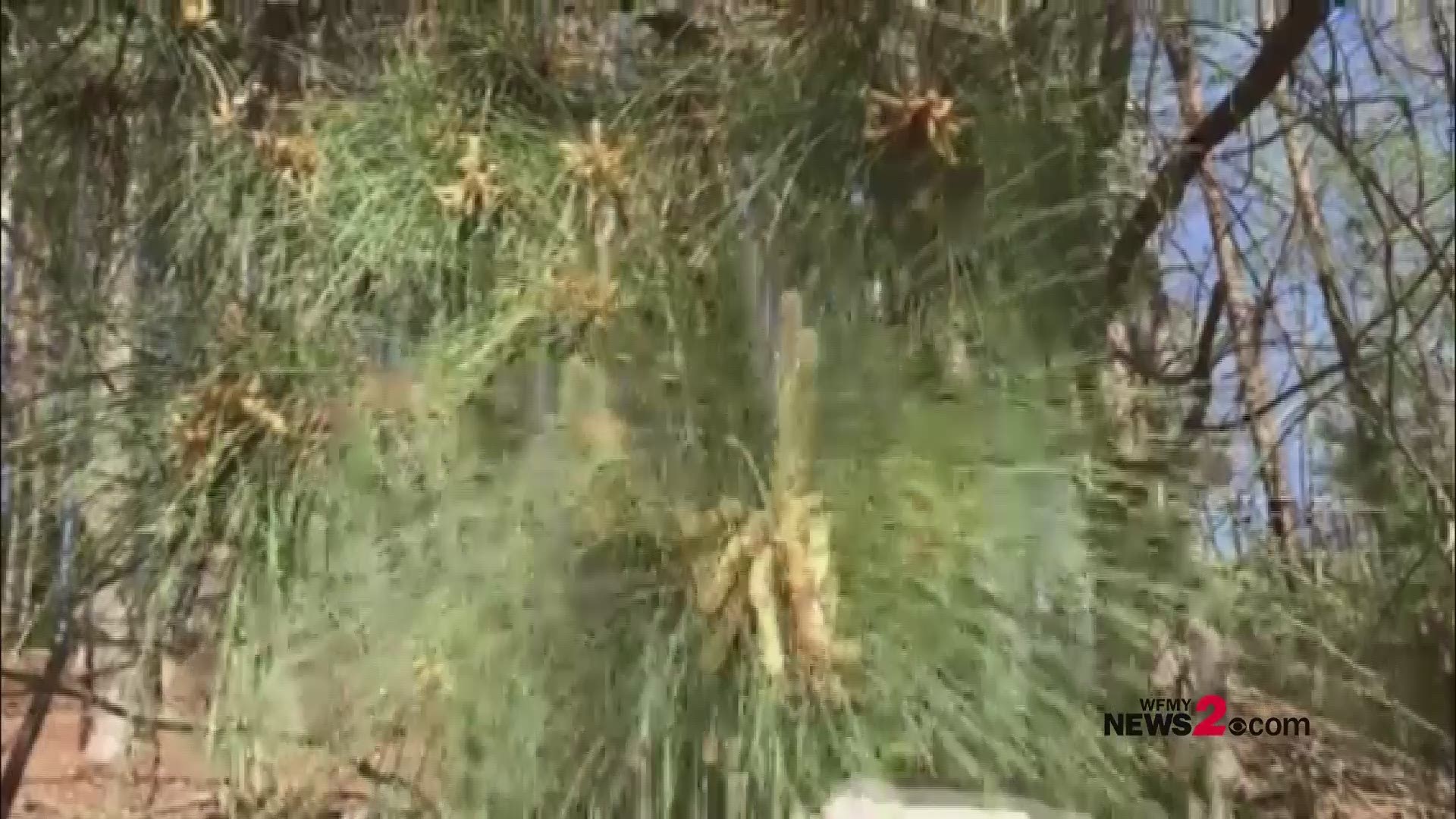GREENSBORO, N.C. — It wouldn't be spring without tree blooms, but more flowers also mean more pollen.
By now, you've probably come across that aerial picture over Durham surrounded by a pollen haze and you probably thought, "YUCK!"
But, think again: pollen and the critters that transport it are actually responsible for a lot of the food you eat everyday.
According to a report on the NC State Cooperative Extension with NC A&T, "it is estimated that pollinators are responsible for 1 out of every 3 bites of food that we eat."
Peg Goodwin, author of the report, explains pollinators fly from one flower to another to extract nectar or pollen. It's during those visits that the insects "often accidentally brush against the flowers reproductive parts, depositing pollen from a different flower."
The result of that exchange is a fruit or seed.
Pollen is not only important for what you eat, it also has an economic impact.
"Over $15 billion annually is attributed to the value of pollination of food crops, especially fruits, vegetables and nuts," says Goodwin.


It's typical this time of year for tree pollen to be high. In the summer, grass pollen is more prevalent, and in the fall the ragweed count is up.
In the our area, the pollen count comes from experts at Forsyth County Environmental Assistance and Protection.
They count the pollen with a tracker based in Winston-Salem and that data helps us know what's in the air and how you can help yourself when it comes to allergies.

